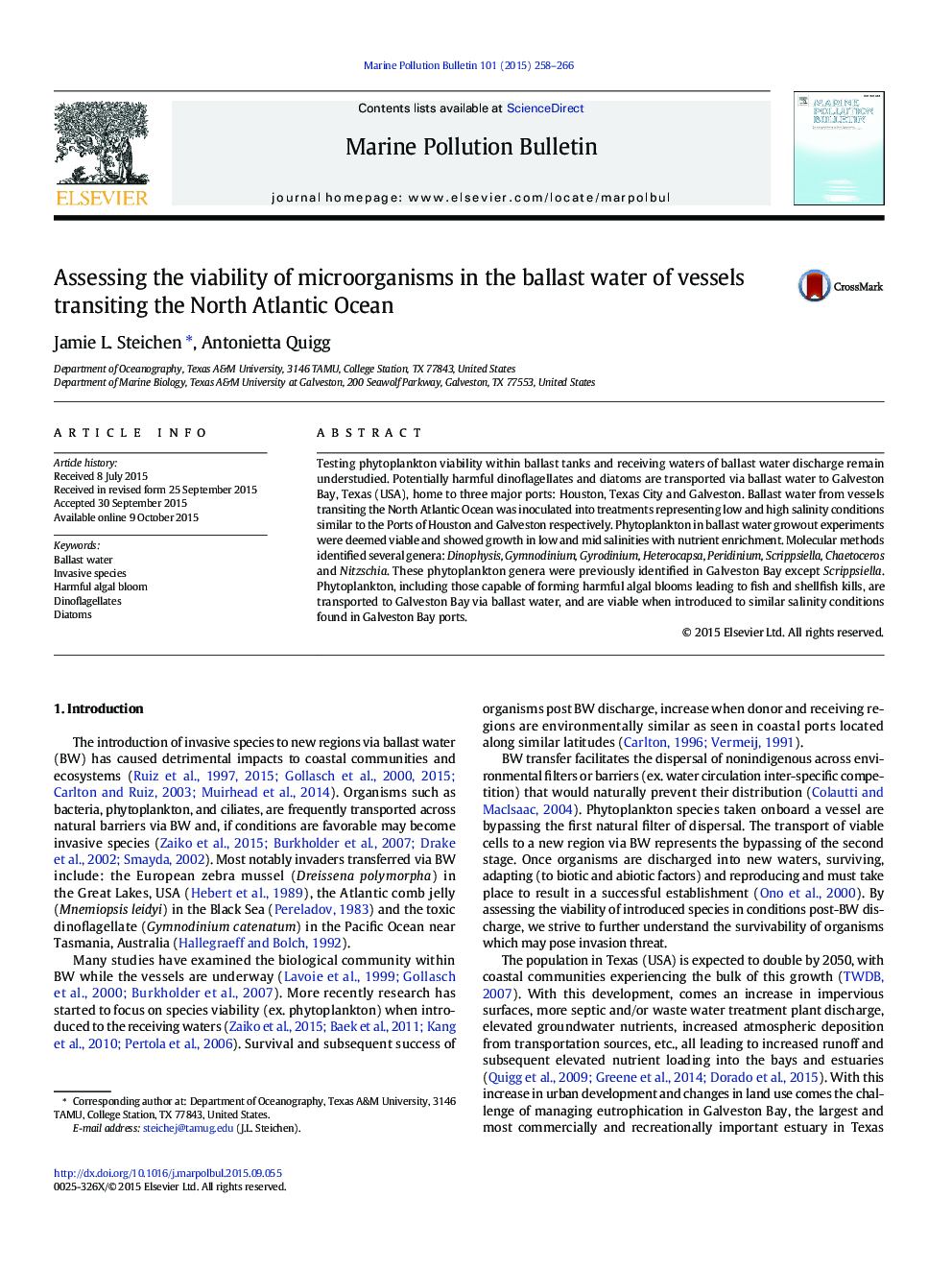| کد مقاله | کد نشریه | سال انتشار | مقاله انگلیسی | نسخه تمام متن |
|---|---|---|---|---|
| 4476609 | 1315604 | 2015 | 9 صفحه PDF | دانلود رایگان |
• Phytoplankton from treated ballast water flourished in brackish water conditions.
• Phytoplankton were genetically identified in growout treatments and ballast water.
• Harmful phytoplankton are being transported in ballast water to Galveston Bay, Texas.
• Increased ballast water release expected post Panama Canal expansion in Galveston Bay.
Testing phytoplankton viability within ballast tanks and receiving waters of ballast water discharge remain understudied. Potentially harmful dinoflagellates and diatoms are transported via ballast water to Galveston Bay, Texas (USA), home to three major ports: Houston, Texas City and Galveston. Ballast water from vessels transiting the North Atlantic Ocean was inoculated into treatments representing low and high salinity conditions similar to the Ports of Houston and Galveston respectively. Phytoplankton in ballast water growout experiments were deemed viable and showed growth in low and mid salinities with nutrient enrichment. Molecular methods identified several genera: Dinophysis, Gymnodinium, Gyrodinium, Heterocapsa, Peridinium, Scrippsiella, Chaetoceros and Nitzschia. These phytoplankton genera were previously identified in Galveston Bay except Scrippsiella. Phytoplankton, including those capable of forming harmful algal blooms leading to fish and shellfish kills, are transported to Galveston Bay via ballast water, and are viable when introduced to similar salinity conditions found in Galveston Bay ports.
Journal: Marine Pollution Bulletin - Volume 101, Issue 1, 15 December 2015, Pages 258–266
